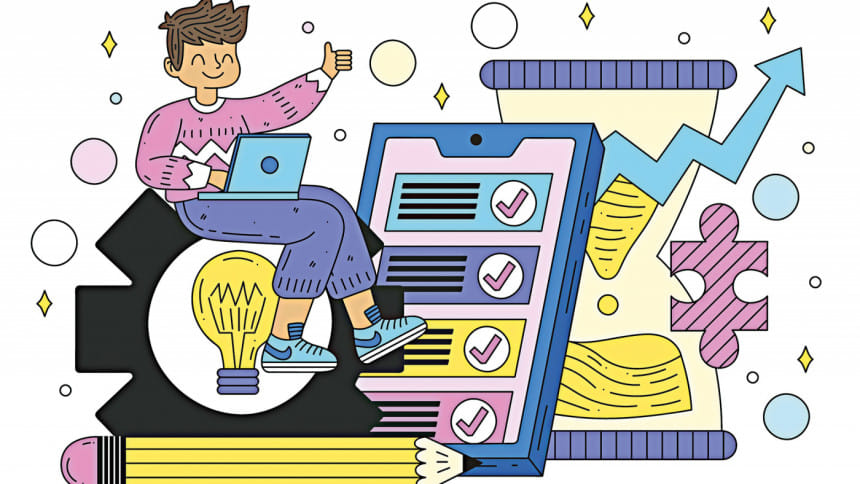Young and Money-Wise

Personal finance management is crucial for long-term financial stability, and starting early can set the foundation for a secure future. In Bangladesh, where economic growth is accompanied by evolving financial opportunities, it's essential for young people to understand and manage their finances from a young age.
Why Start Early?
1. Building a Financial Foundation
Early financial education helps young people develop a solid understanding of budgeting, saving, and investing. This foundation is crucial for managing expenses, avoiding debt, and making informed financial decisions. In Bangladesh, where the financial landscape is rapidly changing with the rise of digital banking and mobile financial services, having this knowledge early on can give young people a significant advantage.
2. Avoiding Debt Traps
Many young people are tempted by easy credit options and loans. Without proper financial education, they might fall into debt traps, leading to long-term financial instability. Teaching young people how to manage credit responsibly and avoid high-interest loans can prevent these issues.
3. Maximizing Investment Opportunities
With the growth of financial markets and investment options in Bangladesh, early education on investing can open doors to wealth-building opportunities. Understanding how to invest wisely in savings accounts, fixed deposits, or government bonds can lead to significant financial benefits over time.
How to Start Managing Personal Finances Early
1. Financial Literacy Programs
Schools and educational institutions in Bangladesh should incorporate financial literacy into their curriculums. Programs that cover basic financial concepts, such as budgeting, saving, and investing, can equip students with the necessary skills. Financial institutions like Dhaka Bank and Mutual Trust Bank have initiated programs targeting youth to improve financial literacy, setting an example for others to follow.
Mustafizur Rahman, Head of Retail at Dhaka Bank shares, "In 2023, we visited several schools and conducted seminars and programs, organizing question-and-answer sessions. We introduced banking offers and showed informative videos to inspire young people to be more financially aware from an early age—a goal supported by Bangladesh Bank."
2. Savings Accounts and Financial Products
Banks in Bangladesh offer various savings accounts tailored for young people. Accounts like the EBL Junior Account or BRAC Bank's Agami Savers are designed to encourage saving from an early age. These accounts often come with minimal fees and attractive features, making them accessible and beneficial for young savers.
"There are schemes that allow young people to be financially included from an early age. Our EBL Junior account holders are contacted by our employees once they turn 18 and are shown options for different types of savings or bank accounts, helping them make financially literate decisions for their future," shares Al Mamun Ansar, Head of Liability Business, Liability Wealth Management, EBL.
3. Use of Digital Banking Tools
The rise of digital banking in Bangladesh provides young people with user-friendly tools to manage their finances. Mobile banking apps allow users to track spending, set budgets, and save money efficiently.
4. Parental Involvement and Role Models
Parents play a crucial role in shaping their children's financial habits. By involving young people in family budgeting, discussing financial decisions, and setting an example of responsible money management, parents can instill good financial habits. Educational institutions can also collaborate with parents to reinforce financial education at home.
5. Government and Community Initiatives
Government initiatives aimed at promoting financial literacy can make a significant impact. Campaigns and workshops designed to educate young people about personal finance can complement school programs.
Starting personal finance management from a young age is essential for securing a stable financial future. In Bangladesh, where financial opportunities and challenges are rapidly evolving, early education and responsible financial practices can pave the way for future success.

 For all latest news, follow The Daily Star's Google News channel.
For all latest news, follow The Daily Star's Google News channel. 



Comments